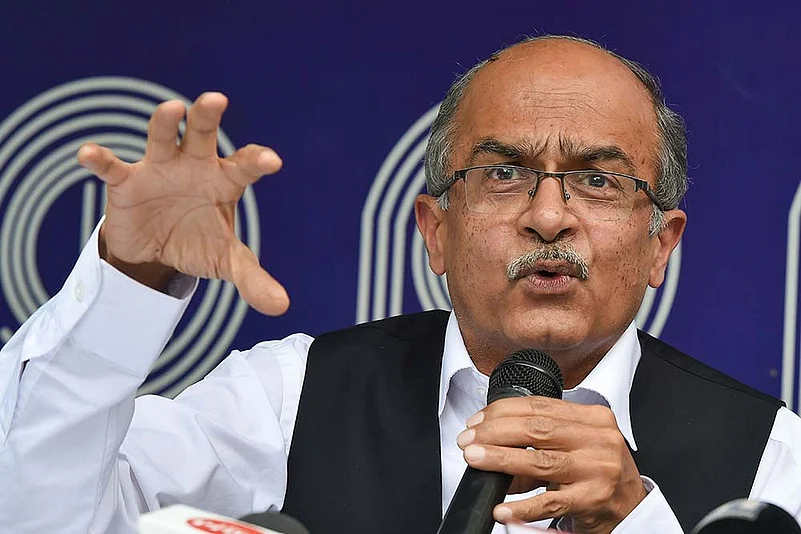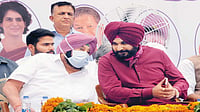It is difficult to explain what really went on in the Supreme Court, on August 20, as a three-judge bench led by Justice Arun Mishra concluded hearing arguments on the quantum of punishment to be awarded to lawyer Prashant Bhushan, who was held guilty of contempt of court on August 14. After spending nearly an hour rejecting arguments for deferring pronouncement of a sentence pending a review of the conviction, the bench spent the next hour convincing Bhushan on why the court believes it shouldn’t do so.
Bhushan stood his ground, even telling the court that he will not change his statement rejecting an apology over his “contemptuous” tweets against Chief Justice of India S.A. Bobde and on the role of the last four chief justices of India in what the lawyer had dubbed as “destruction of democracy”. Bhushan told the court: “My tweets are nothing but a small attempt to discharge what I considered to be my highest duty… I did not tweet in a fit of absent mindedness. It would be insincere and contemptuous on my part to offer an apology for… my bona fide belief”.
Paraphrasing one of Mahatma Gandhi’s quotes, Bhushan added, “I do not ask for mercy. I do not appeal to magnanimity. I am here, therefore, to cheerfully submit to any penalty that can be lawfully inflicted upon me for what the Court has determined to be an offence, and what appears to me to be the highest duty of a citizen.”
Bhushan’s statement came shortly after senior advocate Dushyant Dave argued that the sentencing must be put on hold till a review petition in the case is filed and decided. Justice Mishra had, however, rejected putting the sentencing in abeyance. Dave’s request for allowing a different bench of the apex court to decide the quantum of punishment was also rejected by the bench on grounds that an impression cannot be allowed to gain ground that there was an effort to “avoid the bench of Justice Mishra”.
The arguments by Dave and Bhushan’s counsel, senior advocate Rajeev Dhavan, on reconsidering the verdict came in the backdrop of a massive show of solidarity by former judges, lawyers and public intellectuals for the lawyer who has played a stellar role in some of India’s most notable legal battles over the past two decades. The court has come in for strong criticism over what several former apex court judges, including Madan Lokur and Kurian Joseph, have dubbed variously as flawed understanding of contempt, the court’s proclivity for equating individual judges to the institution of the judiciary and being intolerant of criticism.
Despite the barrage of criticism, the court initially looked determined to punish Bhushan without delay. Even Attorney General KK Venugopal urged the judges to not punish Bhushan. The bench categorically told Venugopal that it was “not inclined” to even consider his proposal.
Insisting that pronouncement of the sentence is consequential to Bhushan’s conviction, Justice Mishra said the judgment “will be complete only when it is totally pronounced.” The bench asserted that Bhushan was free to seek a review and that “in the event we impose any punishment… it will not be activated until the review is decided.”
However, the court’s steadfastness dissipated after Bhushan made his statement and Dhavan explained why, in his view, the conviction was based on flawed interpretation of the law of contempt. As Dhavan punched holes in the court’s verdict, the bench asked Bhushan if he would reconsider his statement made earlier during the proceedings. Bhushan said this “will be a waste of the court’s time” but Justice Mishra insisted that the court “wants to give you 2-3 days time… think over; you must think over. We should not give the verdict right away”.
Since arguments on sentencing have concluded, it is likely that the court may pronounce the punishment on August 24. The controversy over its decision will, however, go on longer.


























